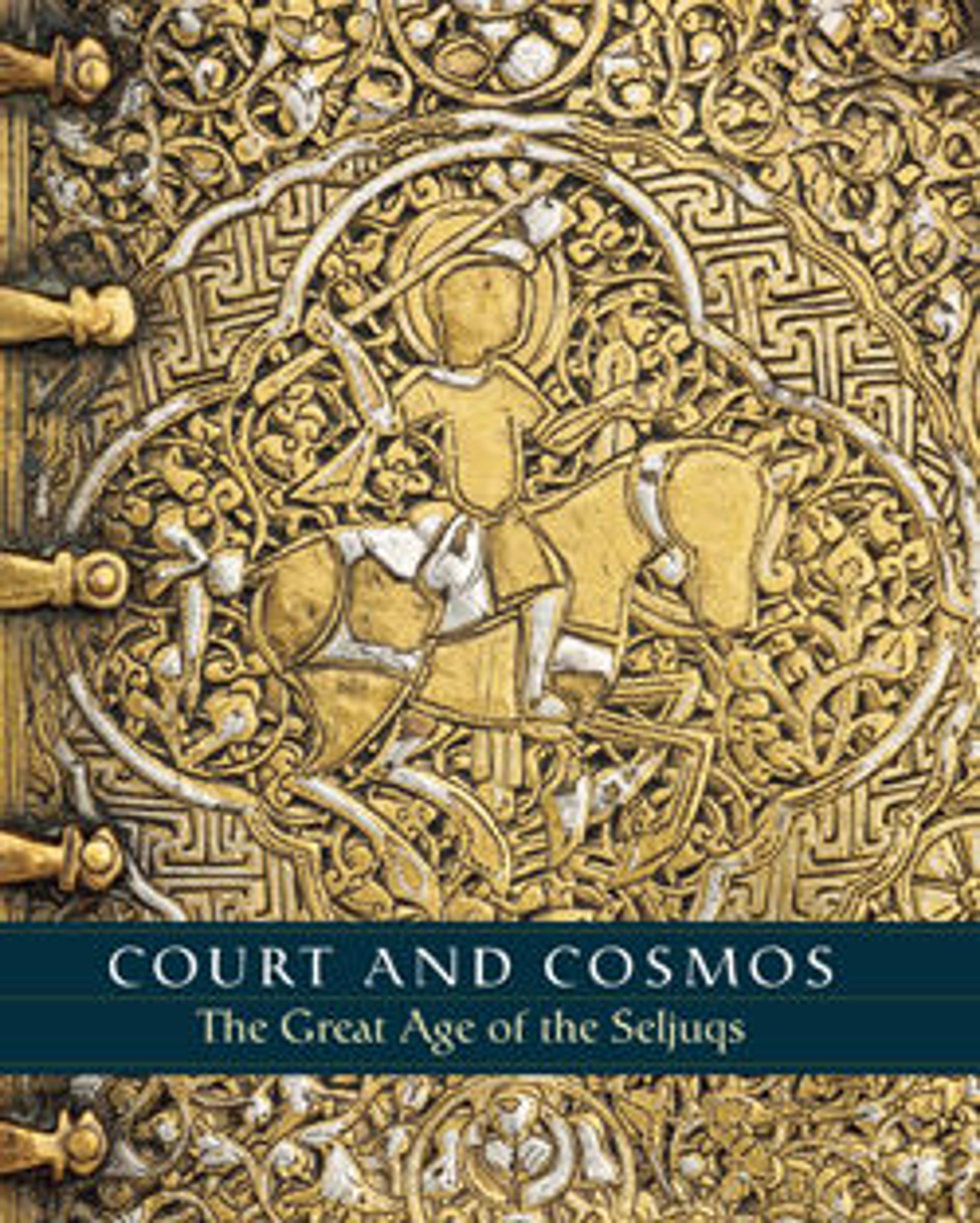Standing Figure with Feathered Headdress
The ornamented headdress, arms, and rich vestments of this figure suggests that figures like this one most likely represent a sovereign’s personal guard, viziers or amirs. Probably meant to decorate the reception hall of a ruler’s court, be it the Seljuq sultan or one of his local vassals or successors, they would parallel and enhance actual ceremonies in the very setting in which they took place. Recent analyses have proven that a traditionally-made gypsum plaster is consistently employed on these figures and on archaeological stuccoes. The figures also display integrated restoration of the first half of the twentieth century, including additions in a more refined gypsum, and modern pigments (some of the reds and synthetic ultramarine blue).
Artwork Details
- Title: Standing Figure with Feathered Headdress
- Date: 12th–early 13th century
- Geography: Attributed to Iran
- Medium: Gypsum plaster; modeled, carved, polychrome-painted, gilded
- Dimensions: H. 47 in. (119.4 cm)
W. 20 1/2 in. (52.1 cm)
D. 8 3/4 in. (22.2 cm) (including wall mount)
Wt. 170 lbs. (77.1 kg)
from the bottom of the coat to the top of the crown: 46 in. (116.8 cm) - Classification: Sculpture
- Credit Line: Cora Timken Burnett Collection of Persian Miniatures and Other Persian Art Objects, Bequest of Cora Timken Burnett, 1956
- Object Number: 57.51.18
- Curatorial Department: Islamic Art
More Artwork
Research Resources
The Met provides unparalleled resources for research and welcomes an international community of students and scholars. The Met's Open Access API is where creators and researchers can connect to the The Met collection. Open Access data and public domain images are available for unrestricted commercial and noncommercial use without permission or fee.
To request images under copyright and other restrictions, please use this Image Request form.
Feedback
We continue to research and examine historical and cultural context for objects in The Met collection. If you have comments or questions about this object record, please contact us using the form below. The Museum looks forward to receiving your comments.
